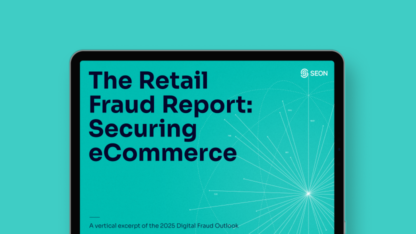What Is Compliance as a Service?
Compliance as a service (CaaS) refers to the sale of expert compliance services to businesses by third parties. Businesses in the financial and healthcare industries, plus government organizations and others that are heavily regulated, can purchase such services.
CaaS covers a range of regulatory compliance requirements, such as risk assessment and the implementation of controls and procedures. It can include training staff on compliance matters, from regulators’ requirements to the systems and processes needed to comply with them.
Regulatory requirements aim to protect businesses and their customers by covering sensitive information and ensuring people’s safety. As such, businesses must adhere to the relevant requirements or face heavy fines and legal penalties.
Compliance can be costly, however. Staff have to understand the requirements, put systems in place, keep abreast of changes, and train on new processes. This has created an opportunity for the rise of compliance as a service.
According to Thomson Reuters’ 2023 Cost of Compliance report, 73% of the 350 businesses surveyed report that they expect to see an increase in their regulatory activities. Many of the organizations also plan to grow their internal compliance team accordingly, with 33% intending to do so over the next 12 months (since they were asked in 2023).
On top of this, other firms are turning to CaaS providers and attempting to buy in the expertise they need while minimizing the disruption to business as usual.
What Does It Offer?
An end-to-end CaaS package takes care of every element of compliance. This includes training staff on what they need to know and do, assessing compliance risks, testing compliance protocols, carrying out ongoing monitoring, and auditing with due diligence.
The insights offered by CaaS solutions can also provide extra analytics and reporting that can further help organizational decision-making.
In fact, many CaaS services offer this level of business insight through automated software that leverages AI tools such as machine learning algorithms.
Partner with SEON to reduce fraud rates in your business, stopping identity fraud, chargebacks, and account takeovers. Enable your growth.
Ask an Expert
How Does CaaS Work?
CaaS works by enabling businesses to buy in the compliance expertise they need. This will usually encompass a framework and timetable for regulatory compliance, an element of staff training, and software that helps achieve and maintain such compliance.
Subscription-based models mean that companies can rely on their CaaS solutions on an ongoing basis.
Many elements can be automated, although human compliance experts are also key to the success of CaaS. They can talk businesses through everything they need to know, including how compliance requirements impact the individual circumstances of the organization in question.
The business then works with the third-party CaaS provider to put relevant processes and systems in place to meet the required compliance standards.
Some compliance as a service providers award certificates to the businesses they work with, so their clients can know when they’ve completed various compliance processes. These certificates can be useful pieces of evidence in terms of demonstrating compliance; however, businesses should note that such certifications do not hold any kind of official status in industry regulators’ eyes.
Compliance is an ongoing process. As such, once businesses have undertaken the initial work to meet their regulatory obligations, they need to commit to ongoing compliance work. This is why many CaaS models are delivered as rolling subscriptions. In these instances, the CaaS company continues to support the business’s efforts to remain compliant, including by responding to any new requirements when regulators move the goalposts.
What Are Its Benefits?
By CaaS providers being up-to-speed with the latest regulatory requirements and how to comply with them, they can help businesses meet their compliance targets swiftly and with minimal disruption to daily operations.
This is a major benefit for companies that are obliged to comply with regulators’ requirements but don’t want to pull staff’s focus away from business as usual.
Buying in CaaS can also provide other benefits:
- training programs that reduce both the need for in-house expertise and the pressure on staff to understand the complex compliance landscape
- the freeing up of internal staff time, owing to the fact that CaaS is outsourced to a third-party provider
- reductions in compliance costs
- peace of mind for otherwise-overworked executives
The benefit of freeing up staff time should not be underestimated. According to Thomson Reuters, 62% of regulated businesses that the firm surveyed report spending between one and seven hours on average every week just tracking and analyzing regulatory developments. This is before even considering the time spent implementing and maintaining compliance-friendly systems.
In addition to all of the above, there are potential reputational gains of using CaaS. A business that meets all its compliance obligations can show it is doing all it can to keep its customers’ sensitive data safe. This helps build trust with customers and potential customers.
What Are the Challenges for CaaS?
While it can deliver multiple benefits, using CaaS is not without its challenges, especially in terms of organizational security, staff engagement, and operational costs.
Here’s a focus on all three of these challenges:
- Security risks: While a key goal of compliance is to help protect customers’ sensitive information, buying in CaaS still means handing over access to such data to a third party. This poses an additional risk in terms of the third party’s employees and supply chain, potentially increasing the chance of a data breach.
- Lack of engagement: Using a CaaS provider may lead some staff to feel that the compliance box has been ticked without them needing to engage further with the latest regulations. This can have a negative impact on awareness-raising activities and training.
- Cost: Often, using CaaS can save a business money. However, it is not without costs of its own. As well as buying in the compliance service, the business may need to purchase new software to accommodate it. Plus, there will still be a cost on staff time throughout the process – albeit a reduced one compared to managing compliance in-house.
Despite these challenges, many businesses report that the gains achieved by using CaaS are well worth it, especially in terms of avoiding the serious fines that emerge from non-compliance. According to Deloitte, for example, fines for failure to comply with anti-money laundering (AML) regulations reached nearly $5 billion in 2022. This certainly puts the cost of buying in a CaaS solution into perspective.
SEON gives you unique in the industry insights on who your customers really are, stopping fraudsters in their tracks without adding unnecessary friction.
Ask an Expert
How Can CaaS Help Your Business?
Compliance as a service can help businesses keep regulators happy, keep customers’ information safe, make better-informed decisions, and even be better prepared to deal with cybersecurity issues.
Regulatory compliance is not a “nice to have”: It’s a legal requirement. Failure to comply can result in significant fines from the relevant regulator. Non-compliance with the requirements of the Health Insurance Portability and Accountability Act (HIPAA) in the US, for example, can result in monetary penalties of between $100 and $50,000 for violations. Intentional violations, meanwhile, can lead not just to fines but to jail time.
CaaS can help businesses avoid all such penalties by ensuring they meet their compliance obligations in full. And, as meeting those requirements means implementing things such as watertight access control and data encryption practices, CaaS also helps businesses boost their cybersecurity. Staff training on security-related compliance requirements boosts this even further.
The regular testing that comes with many compliance as a service packages also means that businesses are better positioned to identify cybersecurity incidents at an early stage. Businesses using CaaS also have a strong foundation from which to resolve any such incidents as swiftly as possible.
In terms of corporate decision-making, the monitoring and analytics data gleaned from expert CaaS solutions can also be very insightful. Plus, some CaaS providers will offer security incident response frameworks and/or training as part of their service.
Steps to Implement CaaS into Your Business
Whether it’s HIPAA or the Bank Secrecy Act anti-money laundering compliance you need to achieve, you can break the CaaS process down into manageable steps:
- assessment
- framework creation
- implementation
- training
- monitoring
The assessment phase maps out what is needed in terms of regulatory obligations and where the business currently stands in respect of these. It identifies gaps and risks that must be addressed in order to achieve compliance.
Next comes framework creation. This step dives into the detail of the regulatory requirements and the actions that must be taken to satisfy each of them in terms of implementing processes, policies, software solutions, training, and so on. It serves as a roadmap to compliance, including resource and budget requirements.
The third step – implementation – involves putting the roadmap into action. The CaaS provider works closely with the business to ensure that every element is implemented correctly. This is the point at which software such as SEON, which provides an all-in-one anti-fraud and anti-money laundering solution, can be rolled out.
Staff training follows close on the heels of implementation. There may well even be a crossover between these two steps. Employees need to understand not just what they must do to achieve compliance but why they must do it. This helps ensure engagement with the necessary processes and that compliance obligations are taken seriously.
Finally, monitoring needs to be in place to ensure ongoing compliance. The CaaS provider should deliver regular analyses of compliance in order to assure the business of this process. They will also flag up any changes to regulations that mean procedures need to be modified.







